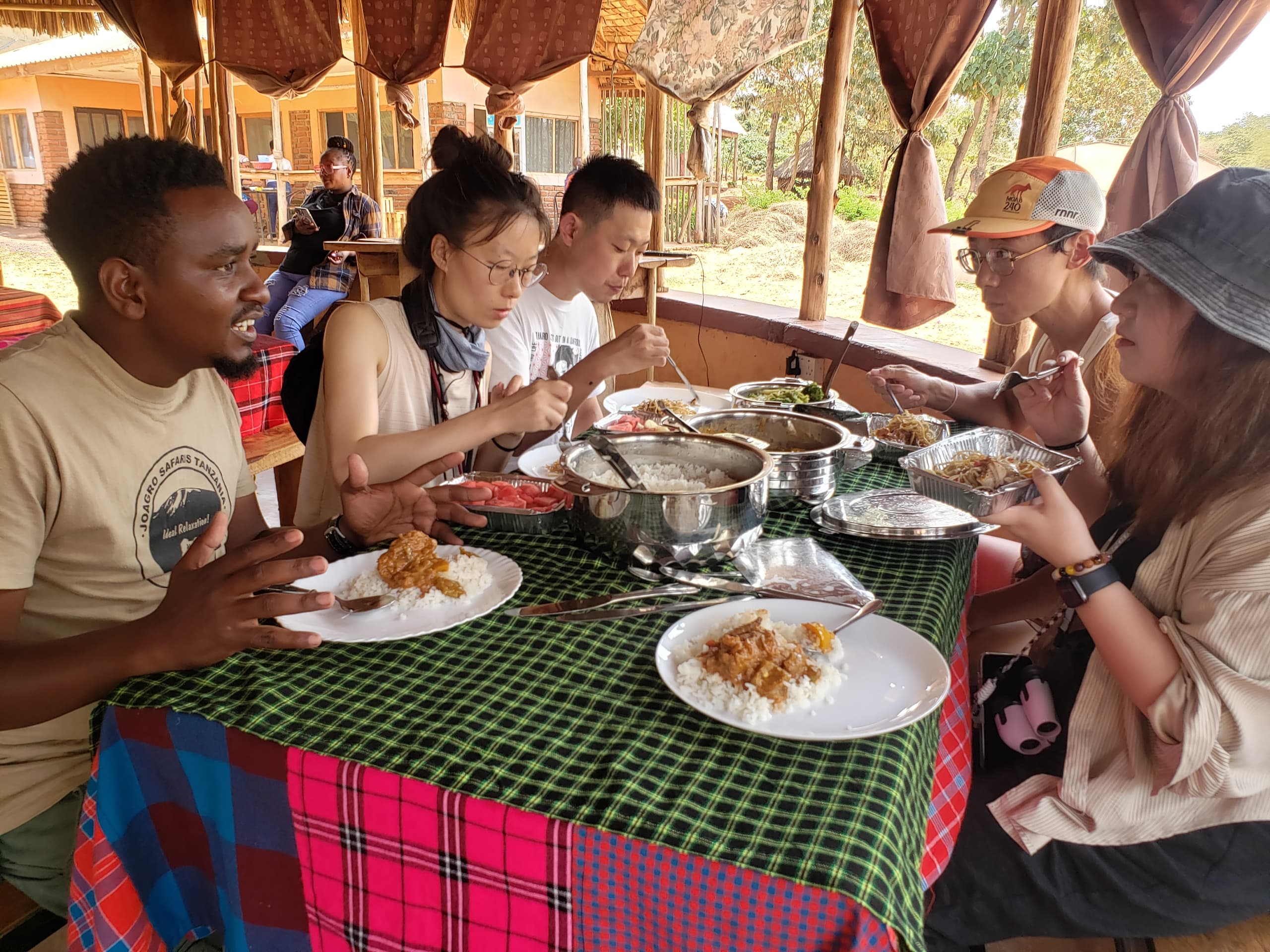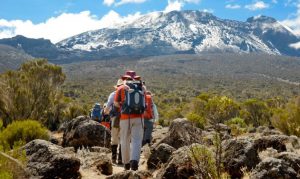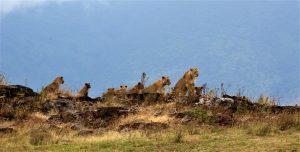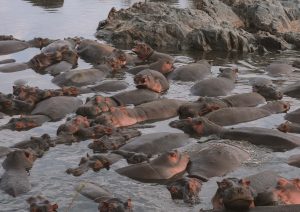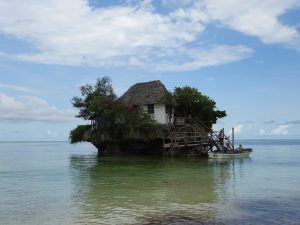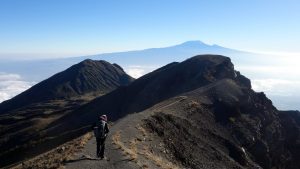Hot meals during a Tanzania safari
Hot meals during a Tanzania safari offer a multitude of benefits that go beyond satisfying basic hunger needs. They add comfort, nourishment, and an authentic cultural experience that enhances the overall safari journey. In the rugged terrain and wilderness of Tanzania, where long days of game drives and exploration can be physically demanding, the presence of well-prepared meals becomes a significant factor in ensuring a fulfilling experience. Let’s explore the various advantages of enjoying hot meals while on a safari in Tanzania.
- Nutritional Value and Sustained Energy
One of the most important aspects of consuming hot meals during a safari is their nutritional value. Safaris often involve early mornings, long drives, and extended hours of wildlife viewing, all of which require a steady supply of energy. Hot meals provide a balanced diet that includes essential nutrients such as proteins, carbohydrates, and vitamins, which are crucial for maintaining stamina throughout the day.
In Tanzania, hot meals often feature local ingredients such as fresh vegetables, fruits, and meats, contributing to a well-rounded diet. For example, ugali (a type of maize porridge), grilled meats, and fresh fish from nearby lakes offer high nutritional value and keep you energized. These meals are carefully prepared to ensure they meet dietary requirements, offering a perfect balance of nutrition to fuel the body during the physically active days of exploring the Serengeti, Ngorongoro Crater, or Tarangire National Park.
- Comfort and Warmth in Cool Conditions
Tanzania’s climate can vary dramatically, especially during the early mornings and evenings when temperatures drop significantly in the wilderness. This is particularly true in higher altitudes like the Ngorongoro Crater, where mornings can be quite chilly. A hot meal during these cooler times not only warms the body but also provides a sense of comfort, making the safari experience more enjoyable.
Imagine starting the day with a steaming cup of coffee or tea paired with a warm breakfast before heading out for a morning game drive. The warmth from the meal helps to prepare you for the cooler temperatures, while also providing the necessary energy to stay alert and engaged. Similarly, after a day of exploration, a hot dinner by the campfire or in a cozy lodge dining room creates a welcoming and relaxing atmosphere. It’s the perfect way to unwind and recharge for the next day’s adventure.
- Cultural Immersion and Local Cuisine
One of the unique aspects of a Tanzanian safari is the opportunity to immerse yourself in local culture, and food plays a significant role in this experience. Hot meals prepared by local chefs often feature traditional Tanzanian dishes, allowing you to taste the flavors of the region. Dishes like nyama choma (grilled meat), chapati (flatbread), and pilau (spiced rice) offer a glimpse into the culinary traditions of the country.
Sharing a hot meal with fellow travelers or locals can also foster a deeper connection to the culture. Meals are often seen as a time for social interaction, and on safari, this becomes an opportunity to share stories, experiences, and knowledge about Tanzania’s wildlife and landscapes. Many safari lodges and camps take pride in offering guests an authentic dining experience that reflects the rich cultural heritage of the region.
- Safety and Hygiene
In remote areas of Tanzania, where access to modern amenities may be limited, the preparation of hot meals ensures a higher level of food safety and hygiene. Cooking food at high temperatures kills harmful bacteria and pathogens, reducing the risk of foodborne illnesses that can occur in outdoor environments. This is particularly important during a safari, where access to medical facilities may be limited, and staying healthy is a top priority.
Safari lodges and camps in Tanzania follow strict hygiene standards to ensure that meals are prepared in clean and safe environments. The use of fresh, locally sourced ingredients further contributes to the quality and safety of the food. Whether you are dining in a luxurious lodge or enjoying a bush dinner under the stars, you can have peace of mind knowing that your meals are prepared with care and attention to health and safety.
- Enhancing the Overall Safari Experience
Hot meals enhance the overall safari experience by adding a sense of luxury and indulgence to the adventure. While the primary focus of a safari is wildlife viewing, the quality of the food and dining experience can significantly impact how memorable the trip is. Many safari lodges and camps go to great lengths to create gourmet meals that rival those of high-end restaurants, despite being in the middle of the wilderness.
Imagine enjoying a multi-course dinner under the African sky, with the sounds of the bush in the background and a crackling fire nearby. This type of dining experience adds a layer of sophistication to the safari, making it not just an adventure but also a culinary journey. For those who appreciate fine dining, the opportunity to savor expertly crafted hot meals while surrounded by nature is an unforgettable part of the trip.
- Customization for Dietary Preferences
Another benefit of hot meals on a safari in Tanzania is the ability to cater to various dietary preferences and restrictions. Whether you are a vegetarian, vegan, or have specific food allergies, safari lodges and camps are well-equipped to accommodate your needs. Chefs take the time to prepare meals that align with your dietary requirements while ensuring that they are still flavorful and satisfying.
For instance, if you prefer plant-based meals, you can enjoy dishes made from fresh vegetables, legumes, and grains that are locally sourced and cooked to perfection. The flexibility in menu options ensures that everyone, regardless of their dietary preferences, can enjoy delicious and nutritious meals during the safari.
- Relaxation and Reflection Time
Meal times during a safari offer an opportunity to relax, reflect, and appreciate the beauty of the surroundings. The long days of game drives can be intense, with constant excitement from spotting wildlife. Having designated times for meals allows you to take a break, sit down, and fully absorb the experience. Whether it’s a hot breakfast before a morning drive or a leisurely dinner after sunset, these moments of relaxation are essential for maintaining a balanced pace during the safari.
Additionally, meal times provide a chance to reflect on the day’s sightings and experiences. It’s common for guides and travelers to gather around the dinner table and discuss the day’s highlights, from the majestic elephants to the elusive leopards. These conversations enrich the safari experience, as they allow you to relive the excitement and learn from others’ perspectives.
- Boosting Mental Well-being
Beyond physical nourishment, hot meals on a safari can contribute to mental well-being. Food has a powerful impact on mood and emotional health, and eating a satisfying, hot meal can provide comfort and happiness. In the often challenging conditions of a safari, where you may be away from the usual comforts of home, a well-prepared meal can offer a sense of normalcy and contentment.
The act of sitting down for a hot meal in a beautiful setting also promotes mindfulness. Surrounded by nature, you are more likely to be present in the moment, savoring each bite while appreciating the environment. This mindful eating practice can enhance your overall sense of well-being, making the safari a more holistic and fulfilling experience.
- Convenience in Remote Locations
When you’re in remote areas of Tanzania, such as the Serengeti or Selous Game Reserve, access to food options can be limited. Having hot meals provided at your lodge or camp adds an element of convenience to the safari experience. You don’t have to worry about sourcing food or preparing meals, as everything is taken care of by professional chefs and staff.
This level of convenience allows you to focus entirely on the safari itself—whether it’s spotting wildlife, photographing landscapes, or simply enjoying the tranquility of the bush. The logistics of meals are handled seamlessly, allowing you to make the most of your time in the wilderness without distractions.
- Creating Lasting Memories
Finally, hot meals on a Tanzania safari contribute to creating lasting memories. The dining experiences, whether a surprise bush breakfast set up in the middle of the savannah or a candlelit dinner in a luxury lodge, are moments that stay with you long after the safari ends. These meals often become a highlight of the trip, as they combine the elements of adventure, culture, and gastronomy in a unique and memorable way.
Many safari operators in Tanzania offer special dining experiences, such as “sundowners” (cocktails at sunset) followed by a gourmet dinner under the stars. These moments provide a sense of celebration and joy, marking the end of a day filled with wildlife discoveries. The combination of good food, stunning scenery, and shared experiences with fellow travelers makes these dining moments truly unforgettable.
In Summary
Hot meals play an essential role in enhancing the overall experience of a Tanzania safari. They provide the necessary nutrition and energy for long days of exploration, offer comfort in cooler climates, and create opportunities for cultural immersion and social interaction. Beyond the practical benefits, hot meals also add a sense of luxury, convenience, and emotional well-being to the journey. Whether you’re enjoying a hearty breakfast before heading out on a game drive or savoring a gourmet dinner under the African sky, the presence of well-prepared hot meals contributes to making your safari in Tanzania a truly memorable adventure.

